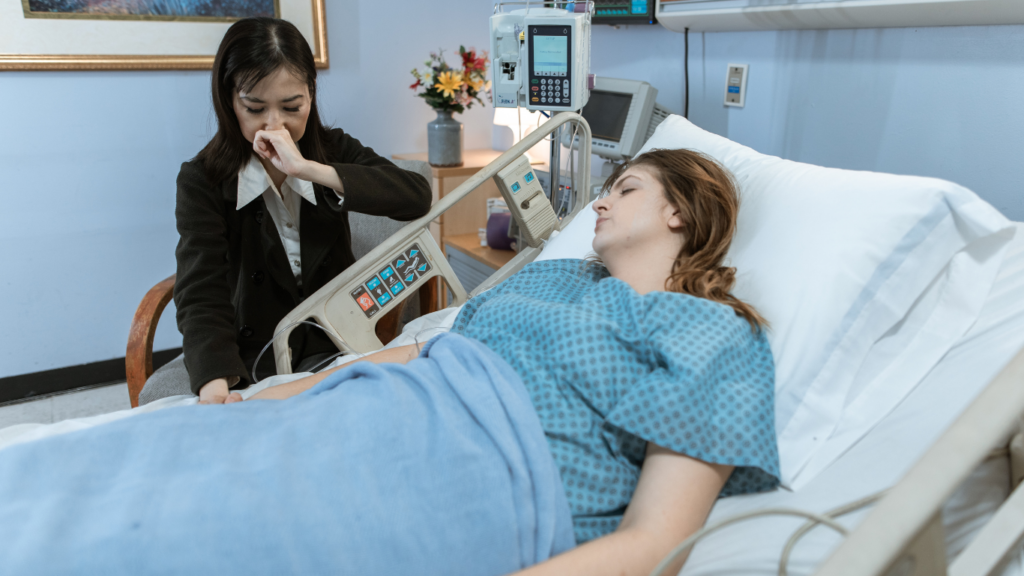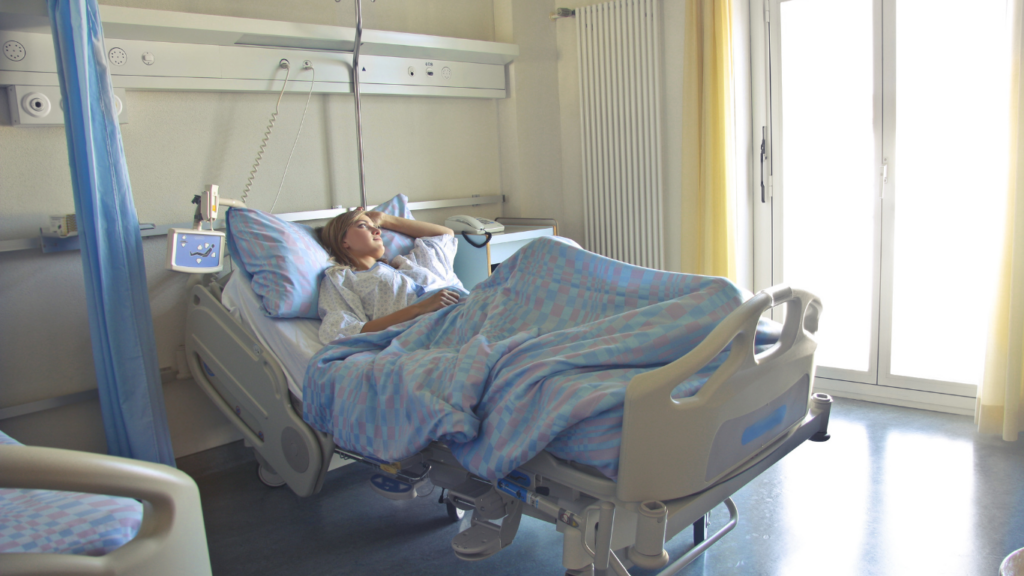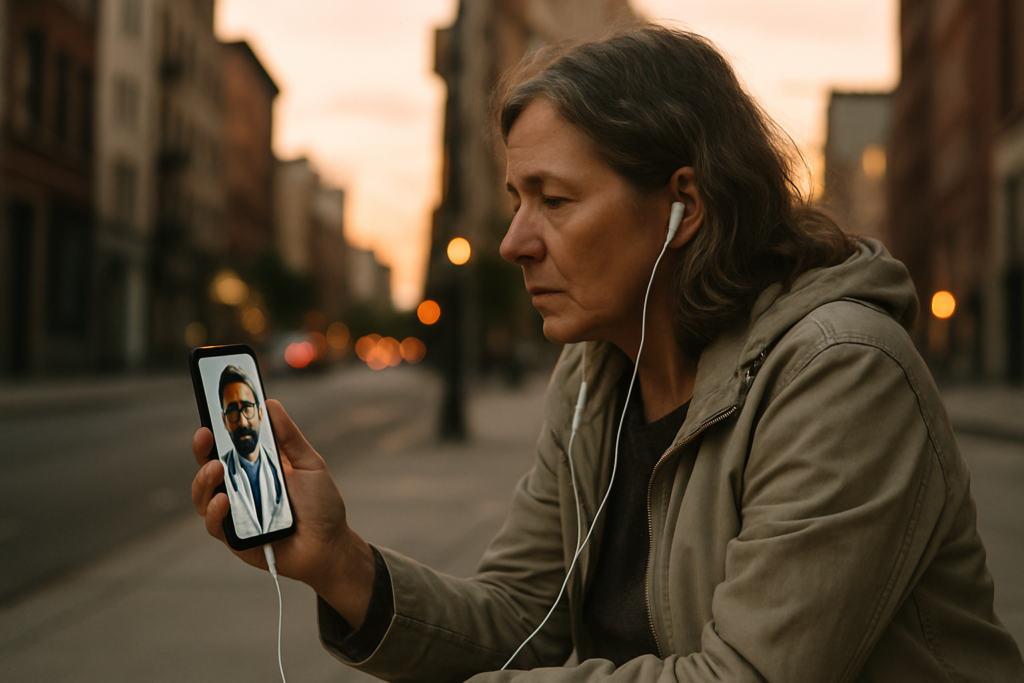In my exploration of innovative solutions for managing hospital anxiety, virtual reality emerges as a promising ally. Imagine a world where the sterile hospital environment transforms into a realm of calm and tranquility at the click of a button. With VR technology, patients can escape the confines of their hospital beds and immerse themselves in soothing landscapes or engaging experiences, effectively reducing stress and anxiety levels.
As I delve into the impact of virtual reality on alleviating hospital anxiety, the potential for enhancing patient well-being becomes evident. By transporting individuals to alternate realities, VR offers a powerful distraction from medical procedures and worries, fostering a sense of relaxation and control.
Through my research, I aim to shed light on the transformative role of virtual reality in reshaping the healthcare experience for patients facing anxiety in hospital settings.
Understanding Hospital Anxiety
Hospital anxiety is a common phenomenon experienced by many individuals when entering medical facilities. It’s a natural response triggered by the unfamiliar environment, fear of medical procedures, and concerns about health outcomes.
For some patients, the anxiety can be overwhelming, leading to elevated stress levels that may impact their overall well-being. One key aspect of hospital anxiety is the feeling of loss of control.
Being in a hospital setting can create a sense of powerlessness in patients, as they are often required to undergo procedures or treatments that they may not fully understand or have control over. This loss of autonomy can contribute significantly to feelings of anxiety and distress during hospitalization.
Moreover, the uncertainty about the future, including the outcome of medical interventions, can further exacerbate hospital anxiety. Patients facing health challenges may experience worry and fear about the unknown, causing heightened levels of stress and unease.
These emotional responses can have a detrimental effect on the patient’s mental health and may impede their recovery process. Understanding the multifaceted nature of hospital anxiety is crucial for healthcare providers to deliver effective care that addresses not only the physical but also the psychological well-being of patients.
By recognizing and acknowledging the emotional impact of hospitalization, healthcare professionals can tailor interventions to help alleviate anxiety and improve the overall hospital experience for patients.
Impact of Anxiety on Patients
Hospital anxiety can manifest in various physical symptoms that significantly impact patients’ well-being. Patients experiencing anxiety may exhibit symptoms such as increased heart rate, shallow breathing, sweating, trembling, and muscle tension.
These physical manifestations can contribute to a sense of unease and discomfort, further exacerbating the overall anxiety levels in a hospital setting. It’s essential for healthcare providers to recognize and address these physical symptoms effectively to alleviate anxiety and promote a more positive patient experience.
Emotional Effects
Anxiety in hospitals can also lead to profound emotional effects on patients. Feelings of fear, worry, helplessness, and irritability are common emotional responses associated with hospital anxiety. Patients may experience heightened emotional distress due to the unfamiliar environment, medical procedures, and uncertainties about their health outcomes.
Addressing the emotional impact of anxiety is crucial in enhancing patient well-being and promoting a sense of comfort and security during their hospital stay.
Cognitive Impact
The cognitive impact of hospital anxiety can disrupt patients’ ability to concentrate, make decisions, and process information effectively. Patients may experience racing thoughts, difficulty focusing, and cognitive overload as a result of heightened anxiety levels.
These cognitive challenges can hinder patients’ understanding of medical information, treatment plans, and can impact their overall experience in the healthcare setting. Providing support to address the cognitive impact of anxiety is essential in ensuring patients receive optimal care and assistance during their hospitalization.
Virtual Reality as a Therapeutic Tool
Exploring virtual reality (VR) as a therapeutic tool showcases its potential in revolutionizing patient care and addressing hospital anxiety effectively. By immersing individuals in a digital environment, VR offers a powerful distraction from the stressors of medical settings, providing patients with a calming and engaging experience.
This technology has the capability to transform the healthcare landscape by mitigating anxiety levels and enhancing the overall well-being of individuals undergoing medical treatment.
Studies Supporting VR Efficacy
Discussing the efficacy of virtual reality (VR) in alleviating hospital anxiety requires a robust foundation of research-backed evidence. Various studies have demonstrated the positive impact of VR technology on reducing anxiety levels among patients in healthcare settings.
Study by Hoffman et al. (2011)
Hoffman et al. conducted a study focusing on the use of VR for burn wound care procedures. Their research showed a significant decrease in pain perception and anxiety levels among patients who engaged with VR during treatment sessions.
Research by Maples-Keller et al. (2017)
Maples-Keller and colleagues explored the effectiveness of VR exposure therapy for anxiety disorders. Their findings revealed that VR-based interventions were successful in reducing anxiety symptoms and improving overall psychological well-being.
Clinical Trial by Falconer et al. (2016)
Falconer et al. carried out a clinical trial investigating the use of VR technology in treating social anxiety disorder. The results indicated a notable reduction in anxiety levels and an increase in self-confidence among participants after VR exposure sessions.
Meta-Analysis by Turna et al. (2019)
Turna et al. conducted a meta-analysis on the efficacy of VR interventions for various anxiety-related conditions. The meta-analysis demonstrated consistent positive outcomes in reducing anxiety levels across different studies, highlighting the potential of VR as a valuable tool in anxiety management.
These studies underscore the effectiveness of VR in alleviating hospital anxiety by providing immersive and engaging experiences that serve as powerful distractors from stressors. The research findings support the integration of VR technology as an innovative approach to enhance patient well-being and transform the healthcare experience.
Implementing VR in Hospital Settings
Exploring the practical application of virtual reality (VR) technology in hospital settings unveils a promising frontier in addressing patient anxiety. Integrating VR solutions into healthcare environments presents a multifaceted approach to enhancing the well-being of patients undergoing medical treatments.
By immersing individuals in virtual environments, healthcare providers can leverage this innovative tool to mitigate anxiety levels and improve the overall hospital experience. Employing VR headsets within hospital settings enables patients to transcend the confines of their immediate surroundings, transporting them to relaxing and engaging virtual worlds.
This methodology offers a significant distraction from the stressors typically associated with medical procedures and hospital stays, fostering a sense of calm and reducing anxiety levels effectively. Through the strategic implementation of VR technology, healthcare facilities can revolutionize patient care by providing therapeutic experiences that cater to emotional and psychological needs.
The application of VR in healthcare settings aligns with a patient-centered approach, empowering individuals to regain a sense of control and agency amidst medical uncertainties. By offering immersive and interactive experiences, VR interventions not only serve as powerful distractors but also empower patients to actively participate in their care journeys.
This hands-on approach to managing anxiety represents a paradigm shift in healthcare delivery, emphasizing the importance of patient engagement and personalized interventions. Moreover, the integration of VR solutions in hospitals is supported by a growing body of research that substantiates the positive impact of this technology on patient well-being.
Studies conducted by leading researchers such as Hoffman et al., Maples-Keller et al., Falconer et al., and Turna et al. underscore the effectiveness of VR in reducing anxiety levels and enhancing the overall hospital experience for individuals navigating medical challenges. By harnessing the potential of VR as a therapeutic tool, healthcare providers can elevate the standard of care delivery and prioritize patient comfort and psychological support.
In essence, the implementation of VR in hospital settings represents a transformative step towards creating patient-centric care environments that prioritize holistic well-being and emotional resilience. By harnessing the power of immersive technology, healthcare facilities can revolutionize the patient experience, alleviate anxiety, and promote healing through engaging and personalized interventions.
This innovative approach underscores the crucial role of VR in redefining the landscape of healthcare delivery and enhancing patient outcomes in a meaningful and impactful manner.




